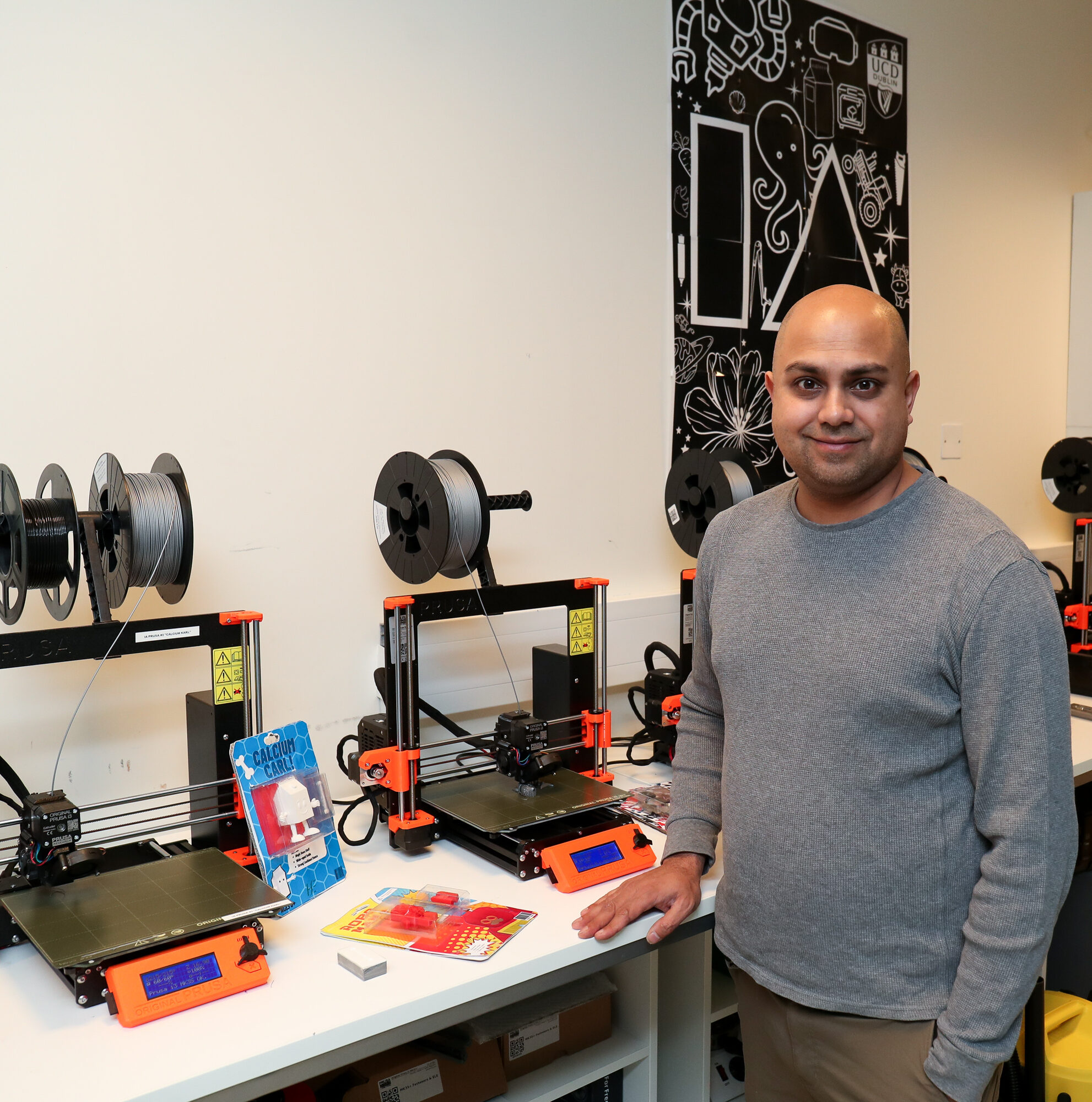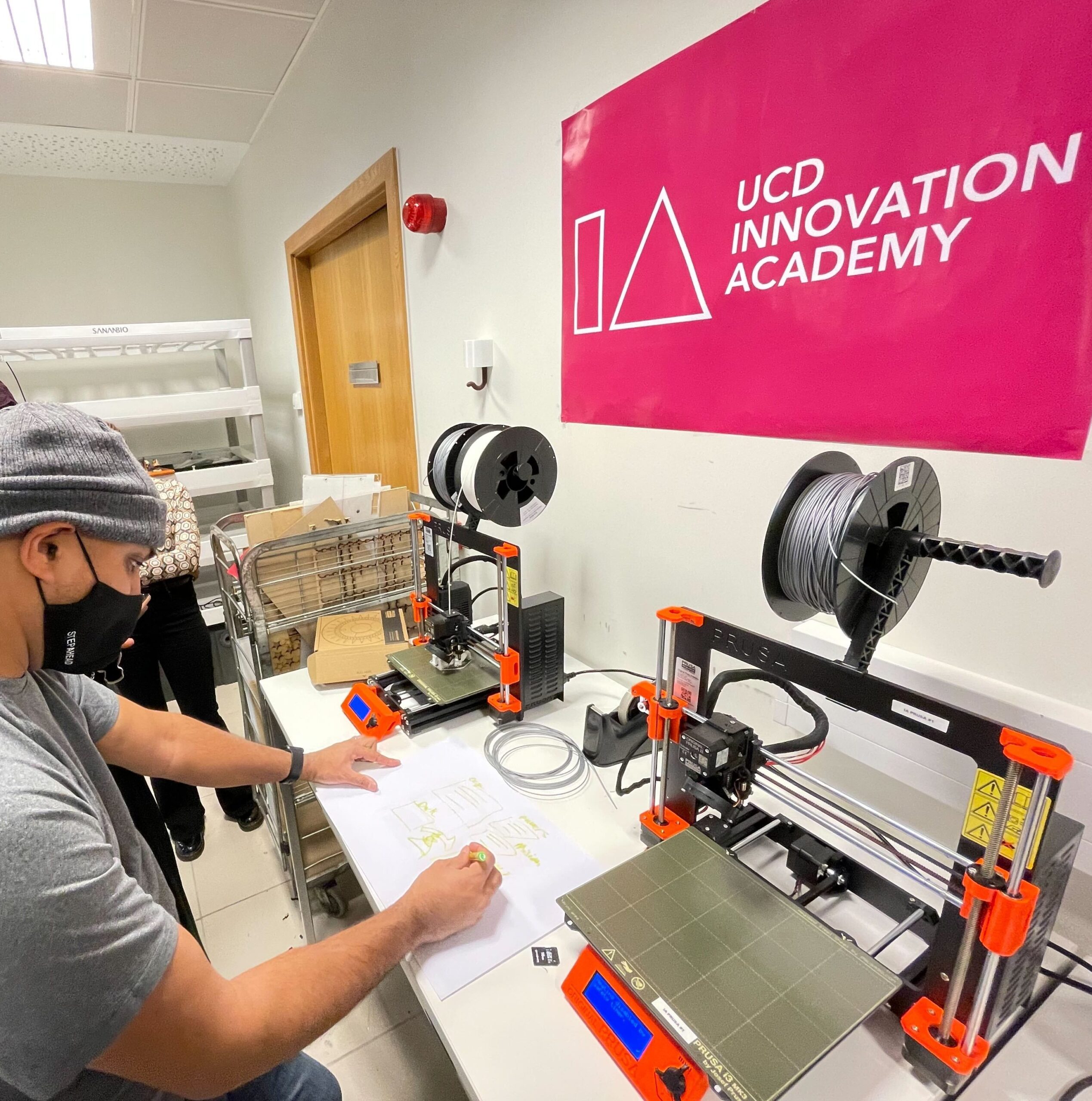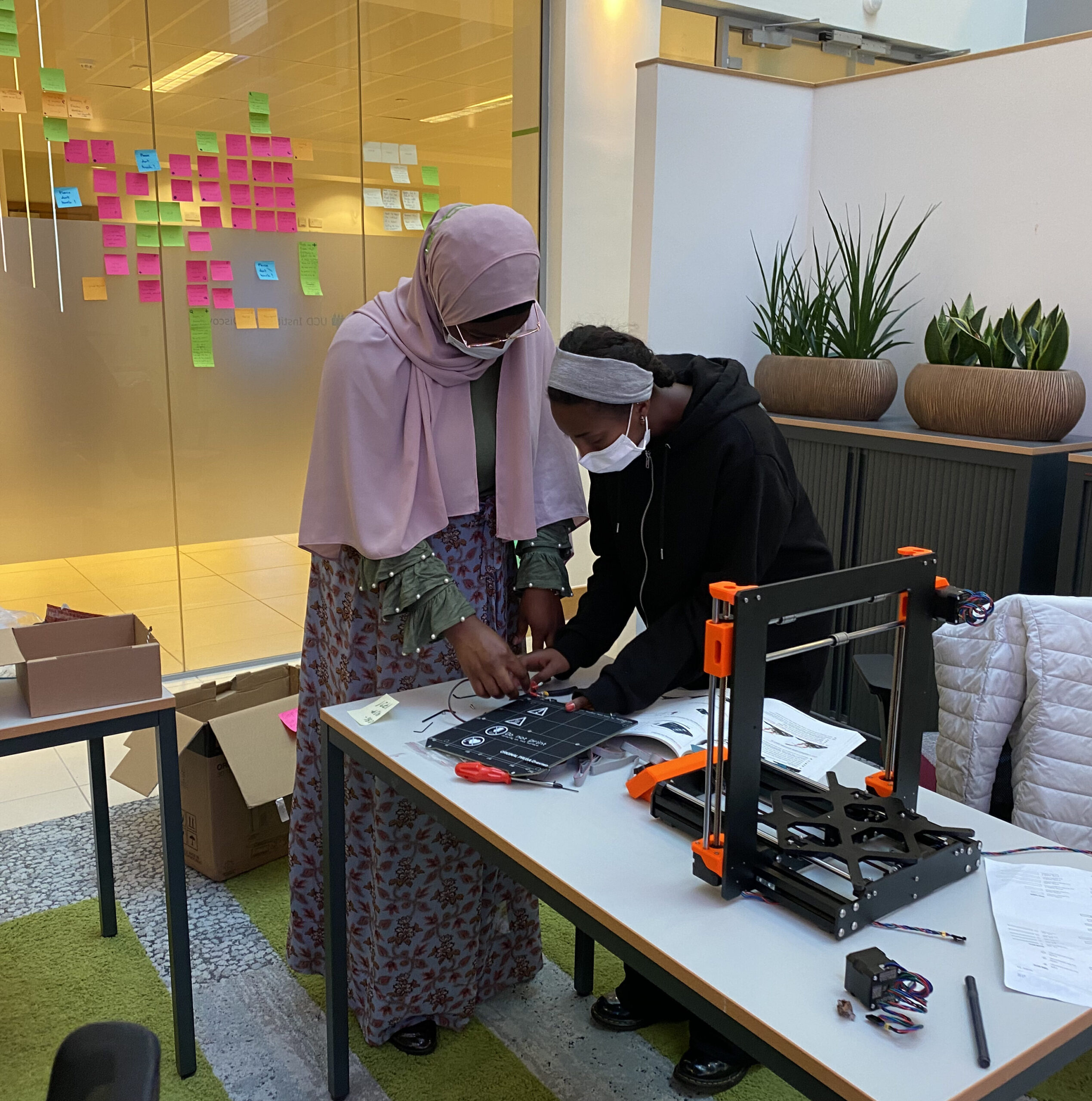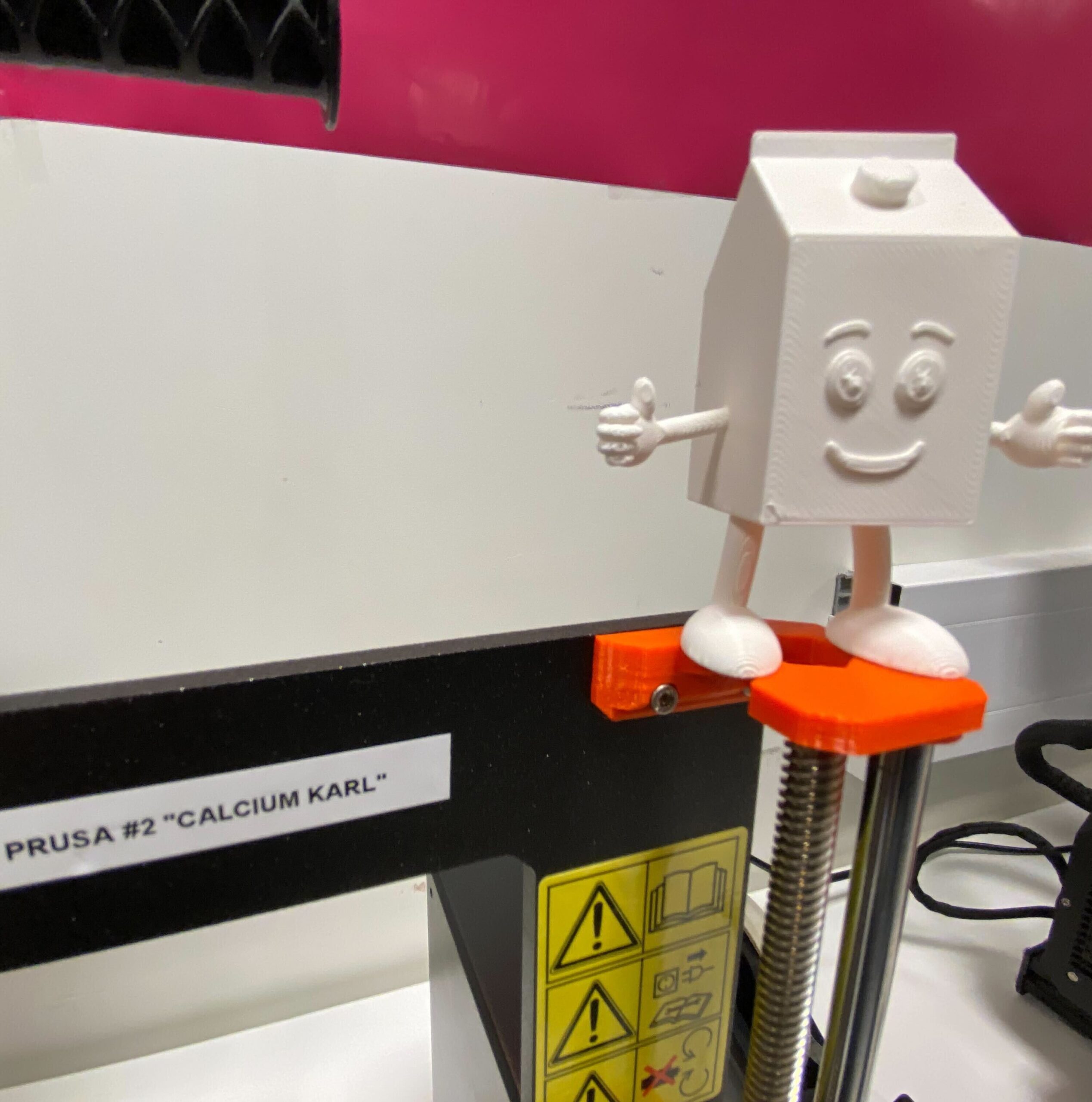*Designing the Future is open for registrations to any UCD undergraduate student in January 2024 who can take electives as part of their course. You can register on SISWeb as you would for regular modules. Search ‘Innovation Academy’ to find a list of our modules. Select a module and register. Our module codes begin with ‘IA.*
“I loved the alternative approach to learning,” says Caoimhe Byrne, neuroscience undergrad at UCD, when asked what drew her to the inaugural class of the MakerSpace Designing the Future Module, which launched at UCD Innovation Academy last year. “We focused on practical, hands-on techniques instead of the more traditional forms of delivery which can get very repetitive after a while.” UCD Economics undergrad, Nikita Fernes, says what drew her in was the opportunity to learn about 3D printing.
“For someone with no technical experience it was great to have an option to learn this creative skill.” And, undergrad Robin Jowett, who is studying law says, “as someone who isn’t 100% sure what is ahead for me, doing this module showed me that there is not always just one result from a degree, one answer to every question or one way to approach a problem.”
The MakerSpace Designing the Future elective at UCD Innovation Academy is the first multidisciplinary module of its type, in Ireland. It has a grand name, and it has lofty goals. In the world we find ourselves, with a future that we cannot predict, the module is focused on expanding students’ horizons – practically. Within the MakerSpace students will have the chance to learn how to use what for many might be daunting technology – 3D printing, Computer Aided Design (CAD), Vacuum Forming & Model Moulding, Laser Cutting and 2D Design. With sustainability at its core, the module introduces students to what is possible in the circular economy no matter what their discipline – you definitely don’t have to be an engineer student to participate in other words.

William Davis is the facilitator for the MakerSpace Designing the Future module. He is an entrepreneur and innovator and was amongst the first to see the importance of MakerSpaces as a way to bring creative minds together to invent in the technological space. He played an integral role in former US President Barack Obama’s Nation of Makers Initiative which launched in 2014. Enthusiasm is possibly his middle name.

“Back in the day we were all inventing, taking things apart and working in our garages,” says William. “We were able to spend time out there, creating, imagining, repairing. Well – at least that’s how I spent my youth,” he laughs. “Home garages and workshops have begun to disappear with the urbanisation of the population. MakerSpaces like the one at UCD offer students the workshop experience and are safe places to practice with tools and technology. If a student is feeling adventurous or curious about how to use this ever evolving technology, not just in their careers but in their lives, this is the course where they can get their feet wet.”
In true UCD Innovation Academy style, a key focus of this module is learning from doing. Eleanor Kelly, who leads Convene at UCD Innovation Academy, the government’s Human Capital Initiative that’s behind the module, says, “The MakerSpace focuses on the skills needed to be successful in the age of the Fourth Industrial Revolution – students of all disciplines take on technological innovations but it’s not all about the tech; just as importantly students are learning problem solving, resilience, collaboration, communication and creative thinking.”

For the final project in the module’s inaugural semester, students were asked to, in William’s words, create next year’s “hottest action figure.” They were expected to create it, using 3D printing, design the packaging, using vacuum forming & model moulding, write an origin-story behind their action figure, “just like they do in the comics,” and then pitch it to a guest entrepreneur. William was blown away by the results. One action figure focused on encouraging kids to eat more calcium, another was focused on mental health, and all of them were created using sustainable methods within the MakerSpace.
To a person the students who offered feedback for this module listed the final project as one of the highlights. As Caoimhe puts it, the project “showed how quickly we could pick up the basics of 3D printing and gave good insight into how fast we could progress in the future if we looked further into the MakerSpace world.”
Students who enroll in January can expect to learn in a fast-paced and fun environment. They will have a lot of independence to let their creative spirit run free. And they will be introduced to skills that are critical in a future where sustainability has to be forefront of all that we do. Whether or not they decide they want to pursue a career in this space, they will know what is possible. They will know, for example, how crowd-sourced manufacturing, on-demand 3D printing and open source design can lead to less waste, and how “distributed manufacturing” can reduce the carbon footprint in the transportation of goods by reducing the physical transportation that takes place.
This year, in the expanded module, they will learn about the cutting-edge green technology that is Mycelium – the hair like root follicles of mushrooms – and how this completely bio-degradable substance has the potential to transform they way we pack and the way we create new products.
Surely, that is knowledge worth having.

Author: Lucy Carrigan
This module’s design was funded by Convene. Convene brings together Ireland’s two largest universities, University College Dublin and Technological University Dublin, to transform university and enterprise engagement in support of an innovative and agile Irish society and economy, powered by the workforce of the future. Convene is funded by the Human Capital Initiative, an historic investment in Irish higher education that’s future proofing graduates with relevant skills, identifying emerging needs from enterprise and promoting reform and innovation in higher education.
For more information, please contact Eleanor Kelly, Strategic Partnerships Lead at UCD Innovation Academy, Eleanor.Kelly@ucd.ie

